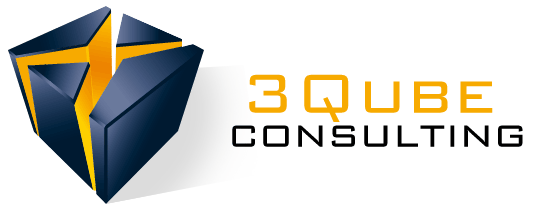3Qube Consulting IT Services in Houston.When your small business is preparing for a 2020 cloud migration, start with the premise that savings, efficiency, and adaptability aren’t attainable without proper planning. The foundation of the migration process is about how best to navigate changes to how people, processes and technology work within your small business. That’s why the steps to a smooth cloud migration hold the key to understanding the deeper challenges of cloud migration.
Proper Migration Planning and Execution
This crucial planning process starts with having a detailed understanding of where you are now, which will determine where you want to go. That means understanding your infrastructure costs today to calculate and compare the costs of operation in the cloud tomorrow. That should start with an audit to give you a solid understanding of the network, storage and database capacity you need to run the applications you want to migrate to the cloud.
Cloud providers have simplified pricing structures so they can be more easily understood. Each of the major providers makes cloud cost calculators available to help in this process:
- Amazon Web Services (AWS) Total Cost of Ownership (TCO) Calculator and more in-depth monthly cost calculator
- Google Cloud Platform Pricing Calculator
- Microsoft Azure’s Pricing Calculator
- Rackspace’s calculator
- IBM Bluemix’s calculator
When it comes to evaluating which workloads are suitable for moving off-premises you must assess them based on the criteria of speed, sensitivity and scale. If an application that you rely on is changing fast, it may be a good candidate for cloud migration since the costs of keeping up with those changes can be lower through software as a service (SaaS).
2020 Cloud Migration Planning
Many small businesses get in over their head with unseen costs, time delays and downtime when they don’t start with less sensitive workload cloud migrations. It may be best to start with small-scale applications that will need to grow quickly. 3Qube Consulting IT Services in Houston Cloud consulting services give you the chance to control the entire process and adjust as you go without hurting the business in big ways.
The idea is to identify and carefully plan the migration process needs for those applications requiring low latency/high bandwidth and extreme interdependence with other workloads, applications and databases. Determining whether cloud migration targets can be part of a shallow migration (lift and shift) hybrid (some aspects in the cloud and some remain onsite or an all-in approach are highly dependent on business needs, timetables budgets. Having the proper strategy is crucial to regulating costs, identifying process challenges and meeting KPI outcomes.
There are also fees attached to the migration process that you must understand and calculate before starting the process including:
- Fees associated with transferring data to the provider’s systems
- Potential bandwidth needs to accommodate cloud workload and application access
- Costs associated with running and synchronizing on-premise and cloud data for system checks before cutover
Migration Support Benefits
Even when it seems like a cloud migration is very basic, your business may lack the necessary people and expertise to execute it on your own. By enlisting the support of an experienced provider of cloud migration services you gain access to strategic approach mapping, cloud architecture development and the expertise needed for the actual migration and post migration process. This support brings the following benefits:
- Experience and knowledge from migrations across numerous businesses and sectors
- The ability to quickly identify your company’s strengths and weaknesses
- Support for determining what workloads will bring the biggest benefit from cloud migration Identifying any additional migration costs
- Putting tangible and intangible benefits into business terms that make sense for you
This can range from growth potential and the ability to deal with seasonal business spikes through cloud auto scaling measures and bandwidth planning needs. To remain competitive, small businesses will need to integrate cloud computing into their organizational and IT structures in 2020. One thing that is certain is that your business needs will change over the course of the coming years.
Cloud SaaS providers like Microsoft Office 365 are responding to those needs with new capabilities such as integrated artificial intelligence (AI). While this opens even more possibilities for your small business, you’ll likely benefit from skilled and experienced support to make 2020 cloud migration cost effective, efficient and beneficial.
Need help with cloud migration for your small business? Reach out to our team at 3Qube Consulting IT Services in Houston today for more information!
